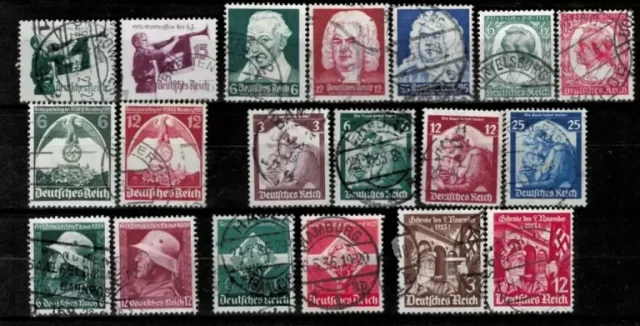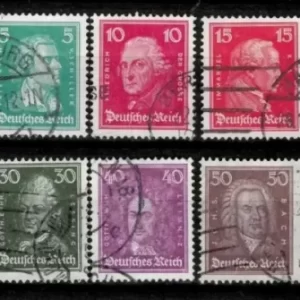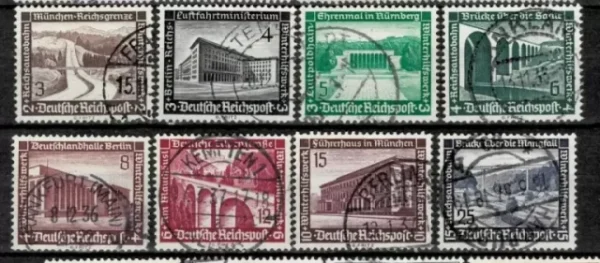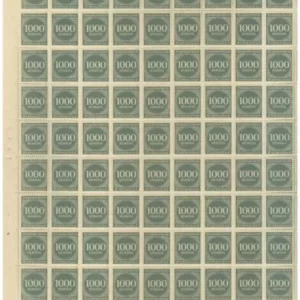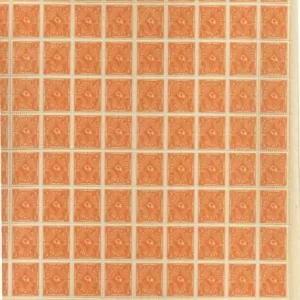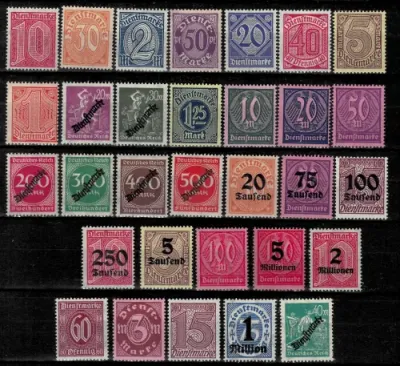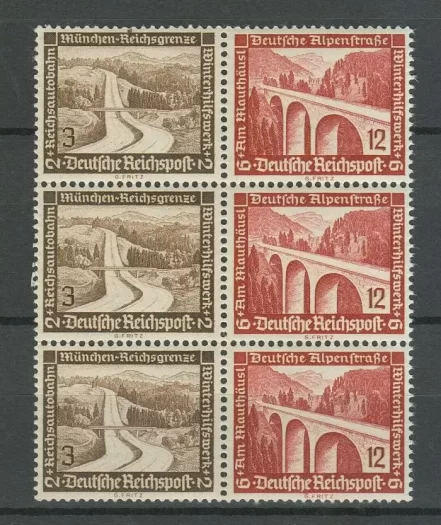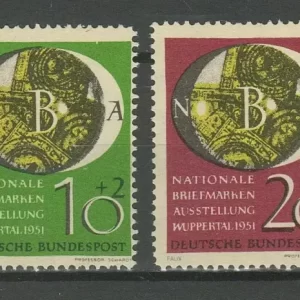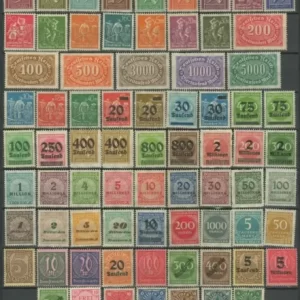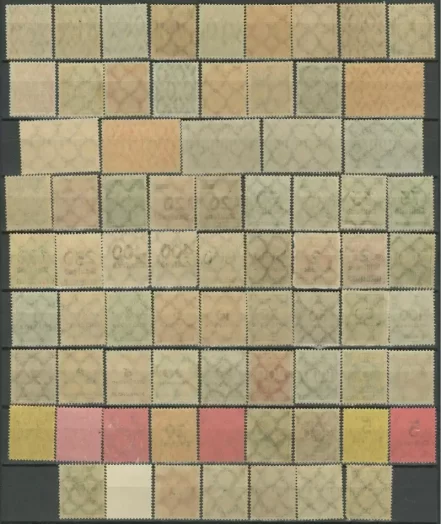German Reich 1932/40 Lot of Used full set of stamps
The period between 1932 and 1940 was a tumultuous time in German history, marked by significant political, economic, and social changes, ultimately leading to the rise of Adolf Hitler and the Nazi regime.
In 1932, Germany was in the midst of the Great Depression, struggling with high unemployment, economic instability, and political polarization. The Weimar Republic, established after World War I, faced increasing challenges from both the far-left and far-right political factions. In July 1932, the Nazi Party (NSDAP) became the largest party in the Reichstag (the German parliament) following the elections.
The instability and economic hardships provided fertile ground for extremist ideologies, and in January 1933, Adolf Hitler was appointed Chancellor of Germany by President Paul von Hindenburg. This marked the beginning of the Nazi regime. Hitler swiftly consolidated power, suspending civil liberties, dismantling democratic institutions, and establishing a totalitarian dictatorship.
In 1934, Hindenburg’s death allowed Hitler to combine the offices of Chancellor and President, becoming the absolute ruler of Germany. This consolidation of power culminated in the Nuremberg Laws, which institutionalized antisemitism and stripped Jews of their civil rights.
Internationally, Germany began to rearm in violation of the Treaty of Versailles, which had ended World War I. Hitler’s expansionist ambitions became evident with the annexation of Austria (Anschluss) in 1938 and the occupation of Czechoslovakia’s Sudetenland later that year, leading to the Munich Agreement.
By 1940, Germany had invaded Poland, marking the beginning of World War II. During this period, the Nazi regime implemented policies of aggression, repression, and genocide, including the systematic murder of six million Jews in the Holocaust.
The years from 1932 to 1940 thus witnessed the transformation of Germany from a struggling democracy into a totalitarian state under Nazi rule, with profound consequences for Europe and the world.

